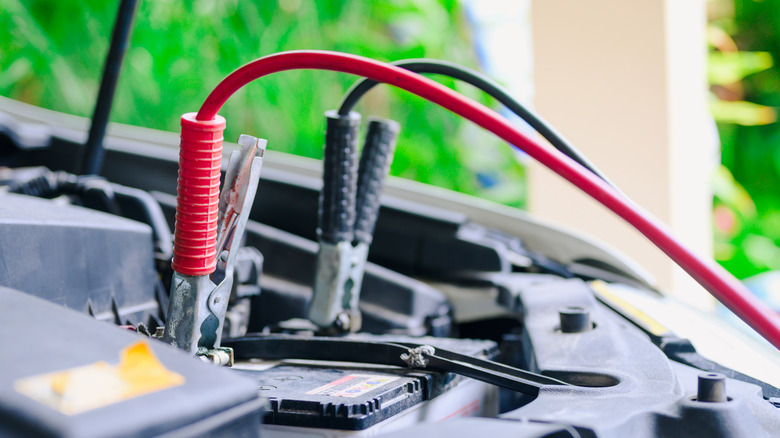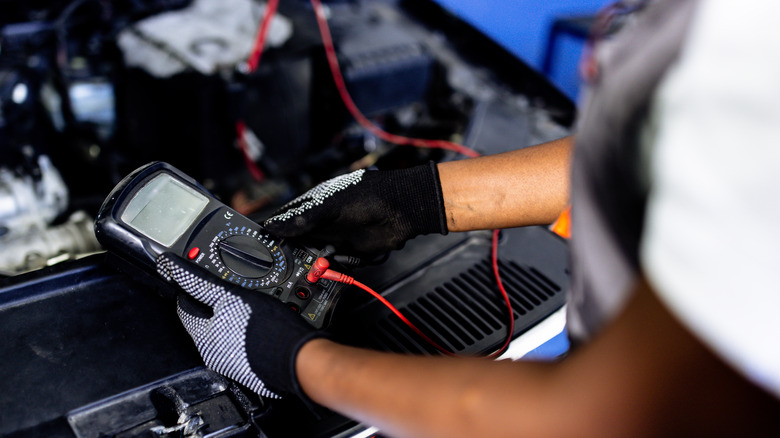4 Common Reasons Your Car's Battery Is Draining So Fast
Determining the cause of premature battery drain need not be challenging if you know where to look. In an ideal scenario, a typical car battery has a three-year or 36-month lifespan, and you shouldn't have problems with hard starting or battery drain in that average period. Car batteries are consumable and need replacing every three or four years, and there are ways to tell if your car battery is nearing the end of its service life.
However, persistent battery drain means potential issues need solving, especially when talking about a relatively new or brand-new car battery. Remember that your vehicle consumes power even when the engine is not running. The security alarm, onboard CPU, and stored vehicle settings use some power when the car is at rest, but they don't use too much power to leave the battery dry — unless something is wrong with the car's electrical systems.
It doesn't matter if you have a typical gasoline or diesel car, any car is susceptible to battery drain, especially as it ages.
Why is my car battery draining power?
One of the worst feelings in the world is entering the car, turning the key (or pushing a button), and nothing happens — not even a flinch. In some cases, the starter motor engages ever so slightly, but cannot get the engine running. It all points to a dead or failing car battery, but what causes newer batteries to drain power?
- Alternator problems: Your car's alternator recharges the battery while driving, ensuring sufficient power to crank the motor. If there's something wrong with the alternator, weak or insufficient charging could leave it unable to recharge the battery. Look for an illuminated alternator warning light on the instrument panel, or have a specialist check the alternator for any electrical shorts or wear.
- Parasitic power loss: A car battery could drain quickly if the electricals deal with a parasitic draw. Leaving the interior lights on when the car is parked could significantly drain the battery. Ensure all the lights in the trunk, doors, glovebox, and cabin are off before leaving the car.
- Damage or corrosion: Check the battery cables and terminals for visible damage, fraying, and corrosion. These can cause hard starting, electrical problems, and battery drain. The good news is you only need everyday household items to clean the battery terminals.
- Extreme weather: Driving through intense hot or cold weather could negatively impact your car's battery charge. If you live in places with inclement weather, consider upgrading to an AGM (Absorbent Glass Mat) or EFB (Enhanced Flooded Battery) that lasts longer and resists the elements better than a regular lead-acid battery.

